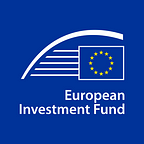What experienced business angels think — about their money, their investments, and the future
Meet Dr Marco or Marcia. He or she is between 45 and 54 years old, likes studying. A lot. So much that they are likely to hold a PhD, MBA or at least a Masters, probably in business, economics or STEM. However, the hard work does not stop there.
They are likely to have worked for a number of years in a technology or engineering-focused firm where they held a managerial position, or created their own venture. Probably both. Neither of them are shy about committing to an investment, putting in around EUR 3 million although this can be as high as EUR 8 million and as low as EUR 1 million. Both of them will have been doing this for around twelve years, in 19 companies.
Over time, both Dr. Marco and Marcia will have put between 11 and 25% of their wealth into the companies they believe in. In terms of sectors, they are partial to ICT and services, but recently, artificial intelligence, machine learning, digital health, fintech and deep technology are capturing Dr Marcia and Marcia’s imaginations. In general, they are pretty optimistic about the next 12 months.
Both Marco and Marcia are fictional of course. However, they represent sixty of some ninety-three business angels supported by the EIF (at the time of the survey) in Austria, Denmark, Finland, Germany, Ireland, Spain and the Netherlands through the European Angels Fund (EAF), a vehicle for making co-investments with business angels in Europe to boost their activity and better support small businesses.
Earlier this year, we reached out to these angels in the first-ever EIF Business Angels Survey. A round up of the results are below. The full survey is downloadable here. Take a look at some of the key findings here:
ICT and services are important now, but AI and digital health are growing
When asked about the most important target industries for business angels investments, ICT top the league. Next come services (which likely also entail an important ICT component), followed by life sciences.
When looking in more detail at “hot” sectors in their current portfolio, business angels are particularly active in artificial intelligence (AI)/machine learning, e-commerce, digital health and fintech. The same sectors, together with investments in energy efficiency/renewable energy, are also expected to feature prominently in the business angels’ future portfolios.
It’s all about people
The typical business angel has a highly educated profile. However, when it comes to making their investment selection, personal capital still counts the most. More than 50% of business angels co-investing with the EAF said that the management team was their main selection criterion.
…and the right people matter
If people are this important, then one of the main barriers that business angels face in investing is, you’ve guessed it, people. According to 52% of the survey respondents, the lack of high-quality entrepreneurs poses one of the biggest challenges to investment for business angels.
Other BAs are the easiest-to-find as co-investment partner…but VCs make the best partners for follow-on rounds
Surveyed business angels think that other business angels are the easiest to find when it comes to looking for an investment partner, shortly followed by sources of public capital. Very very few look for crowd-sourced investors. However, VCs top the league for follow-on rounds. The importance of public co-investors rises as well for follow-on rounds.
And public sector intervention is most helpful on the supply side
Business angels would far prefer any public intervention to be on the supply side, by providing financial support or other support to business angels.
One in three business angels would consider becoming a VC fund manager
Although most surveyed business angels would prefer to remain business angels, one in three would consider becoming a VC fund manager.
Tax systems could be better
Around 70% of the surveyed business angels expressed the need for enhanced tax harmonisation across the EU. They cited a long list of specific taxes for which harmonisation is considered important, notably corporate and capital gains taxes, income tax, sales tax but also the issue of the deductibility of losses. In addition to this, another 70% of business angels cited favourable tax systems as the most underdeveloped element of the ecosystem (please see below).
But the outlook is positive on exits
Exits are dominated by trade sales to strategic buyers. Exit opportunities are expected to improve in the next 12 months.
Do they believe the European Angels Fund is useful?
Yes — to a large extent. More than 4 in 5 EIF BA Survey respondents perceive a positive signalling effect of the EAF commitment, i.e. an increase of their reputation as a BA among potential portfolio companies. EAF co-investments also enable business angels to increase their investment activity without crowding out their personal contribution to BA investments.
However, there is more that can be done.
Respondents mainly asked for more activities, in particular, the support of the EAF to increase deal flow, create co-investment opportunities, facilitate cross-border investments, connect BAs and entrepreneurs and improve secondary market opportunities. Other suggestions included a simplified reporting and more flexible EAF terms.
So Dr Marco and Marcia know what they want. They are still committed to finding the best people, and taking a personal risk with personal capital in investments. Extra simplicity in regulation and tax harmonisation would help.
The EAF is providing public support where it is needed — on the supply side — and is helping business angels with its signalling effect. What we at the EIF can do now is look at how we can increase co-investment opportunities and facilitate cross border investment.
For more detail, please download the EIF’s research and market analysis division’s Business Angels Survey. And for more information on the EAF, visit https://www.eif.org/what_we_do/equity/eaf/index.htm.
